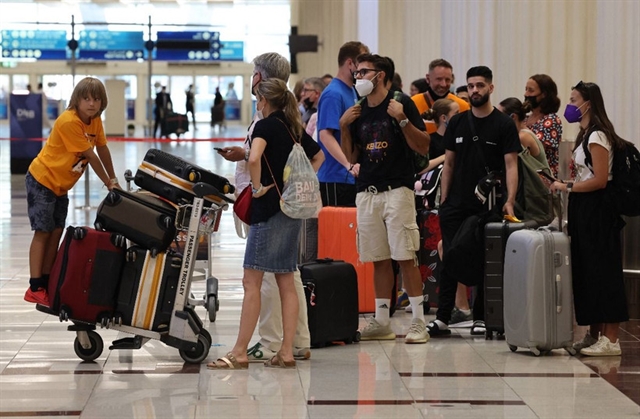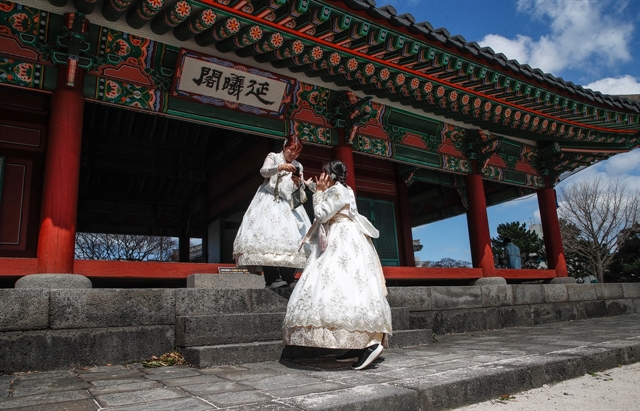 World
World


|
| Foreign tourists dressed in Korean traditional attire, hanbok, take photos at Gwandeokjeong on Jeju Island on March 17, a filming location featured in the hit Netflix series "When Life Gives You Tangerines." — Photo The Korea Herald/ANN |
SEOUL — A Japanese tourist walked into a cosmetics store in Seoul, only to find no prices on display. Pressured by staff, she bought a face mask set — then realised it was being sold elsewhere for one-third of the price. When she tried to return it, the staff instead convinced her to buy a different product, which also turned out to be overpriced.
A Singaporean traveller who left their phone in a taxi was told by the driver it would cost 500,000 won (US$350.77) to get it back. Under South Korean law, that kind of demand would only be legal if the phone were worth more than 2.5 million won. Authorities later told the visitor it could be reported as an attempted embezzlement of a lost article.
These are just two of 1,543 complaints filed by foreign tourists in South Korea last year — a 71 per cent jump from the year before, according to a new report by the Korea Tourism Organization. The number of visitors also grew, but by a smaller margin: 16.37 million tourists came to Korea in 2024, up 48 per cent from 2023.
While tourism is rebounding, frustration among visitors is rising faster. Overcharging, pushy sales tactics, confusing pricing and poor service were among the most common complaints.
The KTO report suggests a link between the rise in tourist complaints and an increase in independent travellers, noting that without help from tour operators, these travellers are more vulnerable to unfair pricing and unclear local systems.
Independent travellers — those who book, plan and navigate trips without guides — now make up the growing majority of visitors, especially from China. In 2019, only 30 per cent of Chinese tourists travelled independently. By 2023, that figure had soared to over 90 per cent. Group tours have dropped from 63 per cent to just 7 per cent in the same period.
The most frequent complaints came from shopping experiences, accounting for 26 per cent of reports with 398 cases. In addition to price manipulation, tourists cited missing price tags, hard-sell tactics and resistance to giving refunds. The Japanese case was one of many tied to cosmetics shops — popular among tourists, but often criticised for targeting those who don't speak Korean with inflated prices.
Taxi services followed closely, making up 20 per cent of the total complaints (309 cases). These included unnecessary detours, inflated fares and in some cases, outright misconduct. A US tourist was dropped off at the wrong hotel after questioning a driver’s route from the airport — then charged 100,000 won (about $70) for the trip to the correct one.
In another case, a Chinese tourist in Jeju was charged 35,000 won for a short, one-way ride after the driver insisted on collecting a round-trip fare.
Accommodation-related complaints (258 cases) also rose sharply — up 82 per cent from the previous year. Visitors cited hygiene issues, unclear cancellation policies and unresponsive staff. Restaurants were the next trouble spot with 98 cases, with complaints about service quality, poor hygiene and lack of transparent pricing.
About two-thirds of all issues were resolved on the spot, often through refunds or direct negotiation. But the KTO noted that many visitors still filed formal complaints afterwards, often feeling that the initial solutions were insufficient or unprofessional.
The KTO says it will work on campaigns to improve customer service and promote fair pricing. — THE KOREA HERALD/ANN




